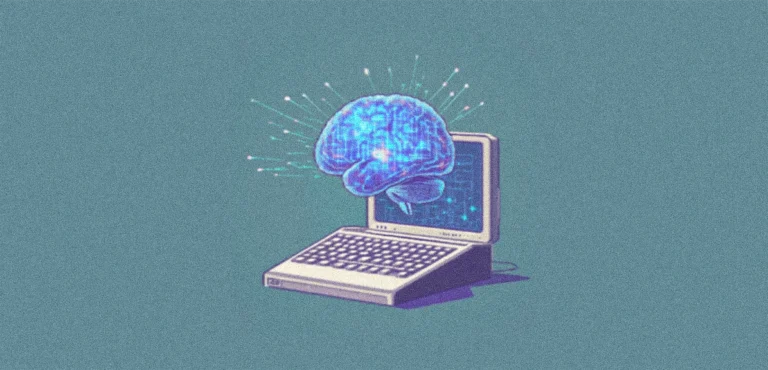
Biological Privacy in the Age of Brainwave Tech
Imagine a world where your thoughts could be read, your emotions analysed, and your intentions predicted. How would you want that data to be used? With the advancement of brain-computer interfaces (BCIs), there comes profound ethical and legal questions about the protection of biological privacy.
Once relegated to the realm of medical research, BCIs and brainwave tech are now being explored for a wide range of applications, from gaming and communication to enhanced cognitive abilities. However, this technological leap forward also carries significant risks. With the ability to decode our deepest thoughts and intentions, BCIs could potentially become tools for manipulation, surveillance, and discrimination.
Let’s dive into the challenge of ensuring biological data privacy, potential legal frameworks, and the future of BCIs.
The challenge of defining biological privacy
Broad scope of biological data: Biological data encompasses a wide range of information, including our thoughts, emotions, intentions, and beliefs. It also includes our cognitive processes, such as decision-making, memory, and learning. This broad scope makes it difficult to define clear boundaries for what constitutes “biological privacy.”
Evolving nature of BCI technology: BCIs are constantly evolving, leading to new applications and capabilities. This rapid pace makes it challenging to anticipate all potential risks and vulnerabilities. As a result, existing legal frameworks may become inadequate as BCI technology advances.
Interconnectedness of biological data: Biological data can be combined with other forms of data, such as genetic information or personal records. This interconnectedness can increase the risk of privacy breaches and misuse. For example, if a company has access to both a person’s brainwaves and their medical records, they could potentially use this information to discriminate against the individual.
Subjectivity of privacy: What constitutes a violation of privacy can vary from person to person. Cultural norms and values can also influence perceptions of privacy. For example, some cultures may have different views on the acceptability of government surveillance or the sharing of personal information.
The need for legal frameworks in brainwave tech
To address the challenges posed by biological privacy, it is essential to develop robust legal frameworks that provide individuals with a high level of protection. These frameworks should address a range of issues, including:
- Data collection and use: Laws should regulate the collection, storage, and use of biological data, ensuring that it is collected only for legitimate purposes and used ethically.
- Consent: Individuals should have the right to give informed consent before their biological data is collected and processed. This consent should be freely given, specific, and informed, meaning that individuals should be aware of the potential consequences of their data being collected and used.
- Data security: Laws should require organizations that collect and process biological data to implement appropriate security measures to protect it from unauthorized access, disclosure, or misuse.
- Access and control: Individuals should have the right to access and control their biological data, including the ability to correct errors, delete data, or restrict its use.
- Accountability: Organizations that collect and process biological data should be held accountable for any violations of privacy laws. This could include fines, penalties, or other legal remedies.
Five specific gadgets or tech where BCIs are being used
1. Neuralink
A medical device developed by Elon Musk’s company, Neuralink aims to implant brain-machine interfaces into the human brain. These brainwave tech devices could potentially restore lost functions in people with neurological disabilities, such as paralysis or blindness.
2. Muse
A consumer-focused headband that can be used for neurofeedback training. It measures brainwaves and provides real-time feedback to help users improve focus, reduce stress, and enhance sleep quality.
3. BrainRobotics
A company developing brain-controlled wheelchairs for people with spinal cord injuries. By using brain signals, these wheelchairs can be navigated more intuitively and independently.
4. MindWave
A headset that can be used to control various games and apps. It measures brainwaves and translates them into actions, allowing users to interact with digital environments using their minds.
5. NeuroFocus:
A company using BCIs to study consumer responses to marketing stimuli. By measuring brain activity, NeuroFocus can gain insights into consumer preferences, emotions, and decision-making processes.
Future of BCIs and brainwave tech biological privacy
As BCI technology continues to advance, there is growing interest in exploring the possibility of using brainwaves as a form of biometric authentication. This could revolutionise the way we interact with technology and enhance security measures.
One of the key advantages of using BCIs for biometrics is the unique nature of brainwaves. Each individual’s brain patterns are distinct, making them a highly secure form of identification. Unlike traditional biometric methods such as fingerprints or facial recognition, which can be compromised or faked, brainwaves are much more difficult to replicate.
BCIs could also be used in situations where traditional biometric methods are not feasible. For example, in environments with poor lighting or where a person’s face is obscured, BCIs could still be used to authenticate their identity.
The potential for both benefits and risks associated with BCIs is significant. While they offer exciting possibilities, they also raise concerns about manipulation, surveillance, and discrimination. To ensure the responsible development and use of BCIs, we need clear standards, strong privacy protections, and a culture of transparency and accountability. By addressing these issues, we can harness the benefits of BCIs while safeguarding our biological privacy.
Distilled
The development of brain-computer interfaces represents a significant technological advancement with the potential to improve our lives in countless ways. However, it is imperative that we also consider the ethical and legal implications of this technology, particularly concerning the protection of biological privacy. By developing robust legal frameworks and fostering international cooperation, we can ensure that the benefits of BCIs are realized while safeguarding our fundamental rights and freedoms.